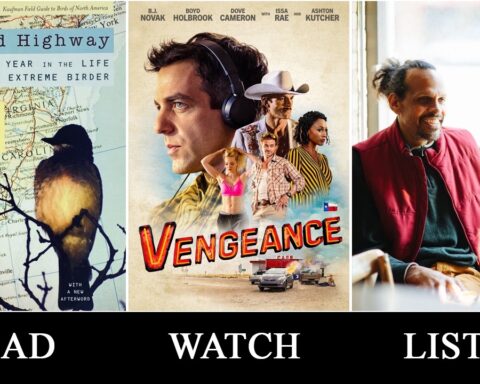Why create a Bill of Responsibilities for institutions?
Following the leaked draft of the Supreme Court majority decision that will repeal Roe v. Wade, Justice Clarence Thomas said that the judiciary is threatened if people are unwilling to “live with outcomes we don’t agree with.” He is also very concerned about a “different attitude of the young,” lamenting that young people do not have the same respect previous generations had for governing institutions. While much can be and has been said about Thomas’ own hypocrisy with this opinion, I cannot argue with his presumption that there is a growing disrespect for institutions. At almost forty years of age, I’m not sure I count in the “young” category anymore, but I know I certainly no longer have spontaneous and inveterate respect for America’s branches of government, corporations and employers, schools and colleges, bureaucratic systems, federal oversight commissions, nonprofits, or institutions of any kind.
While in theory I agree with Gordon L. Weil that “protecting our system may be more important than any single court case,” there are limits. I believe the historic Dred Scott decision, for example, is a court case in which the protection of the system was far less important than the execrable outcome. For many, the repeal of Roe v. Wade might so fundamentally break social contract that it is only natural for them to lose respect for the Supreme Court. This disrespect is completely comprehensible — and it is no crime; in fact, it is a natural companion to freedom of thought. I believe history proves that our founding fathers would agree; after all, they were willing to condemn their entire existing government infrastructure (the British rule of King George III) after the Boston Massacre. Default respect is not the actual issue; no, the central point of divide lies in the execution of the contract between institution and individual, and the expectations that we have of organizations and establishments.
So the question becomes when is it acceptable to disrespect an institution?
To answer, I found it helpful to create a list of responsibilities that an institution must fulfill in order to earn the respect of individuals, structured along the lines of three very American values: life, liberty, and the pursuit of happiness. Unlike a Bill of Rights, which enumerates the rights of the individual, this Bill of Responsibilities lists the expectations that an individual has of their governing institutions and organizations. I do not claim that it is complete, but merely hope that it serves as a starting point for a better class of dialogue.
I believe this list works for far more than our federal government; I was able to use it to analyze institutions of every kind, from Fortune 500 companies and employers to schools and universities to nonprofits to government oversight organizations and other bureaucracies.
We must elevate the discourse from us vs. them to the precise articulation of the sources of discontent that breed our disrespect. Unambiguous communication provides our only hope of being heard, affecting change, and regaining our respect for the systems of rule. I hope that others find this checklist helpful, both to analyze their own affiliated institutions and to better communicate their grievances.
The Bill of Responsibilities
The following principles apply only to individuals who have chosen, with full faith and knowledge, to show membership in or affiliation with specific institutions.
If you are unable to check the box next to each of these points regarding your institutions’ behaviors, then you may have a specific grievance that should be further articulated and explored. Each point is accompanied by examples of institutions or heads of institutions that violated or continue to violate that principle.
I: LIFE

An institution must prioritize the detailed and timely enumeration of an individual’s roles, responsibilities, rights, and recourses in written form. The institution must not demand an individual’s participation without a clear and lawful guidebook of the expectations of both parties. The institution must fulfill any and all terms of that contract, and must not make amendments to the contract that contradict the other enumerated individual rights on this list. The institution must also inform the individual of avenues of recourse should it breach any aspect of the contract.
Violators: The US Supreme Court (historic), Relativity Media

An institution must never demand that an individual provide more than that individual can afford to give while still meeting essential survival needs.
Violators: UCLA, The United States of America, Minnesota Police

An institution must never knowingly endanger an individual without their complete and knowledgeable acceptance of risks, safety processes, and financial compensation for required hazardous behavior.
Violators: Monsanto, Amazon, FirstCash, San Antonio School District

An institution must never prioritize profit, productivity, or institutional goals over an individual’s biological and/or reproductive health.
Violators: Amazon, Cleveland School District (historic)

An institution must never discriminate on the basis of protected classes.
Violators: Florida, California Highway Patrol, Walt Disney
II: LIBERTY

An institution must never control or claim ownership of work that an individual does with their time outside of their contractual obligations. While an institution may pay for an individual’s time, products, or services, it can never purchase an individual’s entire productive output.

An institution must never dictate an individual’s opinions, thoughts, purchases, or ideologies on platforms, during times, and in places not owned and managed by the institution itself.
Violators: US Steel (historic), United States Court of Appeals

An institution must never mandate that an individual participate in its marketing mechanisms, nor that they publicly endorse it, its character, its products, and/or its systems. The institution must acknowledge that it is acceptable for individuals to be affiliated not out of desire, preference, or passion, but out of need or personal elevation.
Violators: Abercrombie & Fitch, NFL

An institution must limit its impact within an individual’s life to specifically contracted and mutually acknowledged schedules.
Violators: Many American businesses
III: THE PURSUIT OF HAPPINESS

An institution must ensure that an individual’s contributions, progress, and records of productivity are clearly noted, documented, and considered equitably for job security and advancement within the institution.
Violators: Goldman Sachs, Tri-Modal Distribution Services, Advocate Health & Hospitals

An institution must construct and enforce a system of equitable accountability for all hierarchies. Conversely, the institution must ensure that the individual is eligible to share in all rewards and profits incurred.
Violators: Nestlé USA, Abercrombie and Fitch, Kroger, Berkshire Hathaway, Elon Musk, Donald Trump

An institution must provide individuals with the means and opportunity to impact the larger goals, culture, and processes of the institution in a fair and free manner, should the individual have the more meritorious or persuasive logical argument. Note: a long-term history or tradition of behavior is not a meritorious or persuasive logical argument.
Violators: Kumho Tire, Republicans and Democrats

An institution must be responsible for holding other institutions under its governance, oversight, management, or ownership accountable for violations against these enumerated individual rights.
Violators: Wells Fargo, The US Supreme Court

An institution must make certain that no process or regulation continues to exist when a majority of the individuals that comprise the institution are against it, except in cases where such a process or regulation protects any of the other enumerated individual rights.
Violators: DISH TV, The US Supreme Court
Conclusion
Again, I do not intend this checklist to be definitive or exhaustive, but merely a starting point for a dialogue. I believe if someone hesitates to check any of these boxes about their institution’s behavior, then potentially a very serious problem exists within the culture — one that can only be solved if we begin from a healthy and alert level of disrespect for the behavior, and for the institution that condones and/or performs it.
So, in other words:
Yes, Clarence Thomas, I, like many others, do disrespect a growing number of our institutions. Now, rather than getting stuck on that fact, let’s have a conversation about why, shall we?








Brilliant and thorough! You shoulda been a lawya! Or at the least, a tech writer!
One institution that poses very real threats to our country, and indeed to our species, is ironically our military. We humans tend to create what we fear. I don’t know how to stop this institution from bankrupting America at the very least, let alone its environmental impact in peacetime, let alone its ultimate capacity for apocalyptic outcomes in war. To my mind, no bigger problem exists. Not curing cancer, not climate change, not even the death of democracy. Our species is circling the drain as long as the military industrial complex is enabled to keep iterating.
If you ask me why I think The Universe put me here, it’s to find an effective way (via filmmaking) to get our species to choose more life affirming approaches to addressing fear that can never be extinguished, but it can be diminished. No artform is more effective at unifying the heartbeats of an audience than film.
Thank you, David! And yep, I agree with the film bit. The reason I’m a filmmaker is because it uses pretty much ALL of the arts together, holistically, making it a universal language like nothing else.